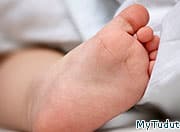A US fertility clinic is investigating the health of children born more than 15 years ago as a result of a controversial technique using genetic material from three parents.
The news comes as MPs in the UK prepare to debate legalising similar three-parent baby techniques in the House of Commons next week.
Until this year, researchers at the Saint Barnabas Medical Centre in New Jersey have never looked into whether the 17 children who were born using cytoplasmic transfer have had associated health problems.
Mitochondria
The technique involves taking a small quantity of cytoplasm, including mitochondria, from a healthy donor egg and injecting it into an egg cell of the mother, producing a mix of mitochondria from two women.
The egg is then fertilised with the father’s sperm outside the womb.
Around 30 babies worldwide are thought to have been born as a result of this technique.
Genetic material
The US Government banned the technique in 2001, as it involves transferring genetic material “by means other than the union of” sperm and egg.
Recently, the US Food and Drug Administration (FDA) again raised concerns about cytoplasmic transfer whilst reviewing similar techniques, which are about to be debated by MPs in the UK.
The FDA highlighted reports of two instances of Turner syndrome, where children are missing one of their two sex chromosomes, and one instance of pervasive development disorder.
Debated
The UK fertility watchdog maintains that cytoplasmic transfer is not the same as Maternal Spindle Transfer (MST) and Pro-Nuclear Transfer (PNT), which are the two techniques being debated by UK MPs next week.
MST aims to create children free from mitochondrial disease by replacing the nucleus in a healthy donor egg with the nuclear DNA from the prospective mother.
PNT creates a child from four different individuals (a chromosomal mother, a chromosomal father, an egg mother and a sperm father).
Safety concerns
Other ethical and safety concerns have been raised about the controversial techniques.
Bioethics expert Dr Calum MacKellar, says the techniques may carry medical risks for children, and for future generations.
He said the plans also raise profound ethical questions about the destruction of embryos in research.
Next week’s debate in the House of Commons on legalising MST and PNT was initiated by Conservative MP Fiona Bruce.

